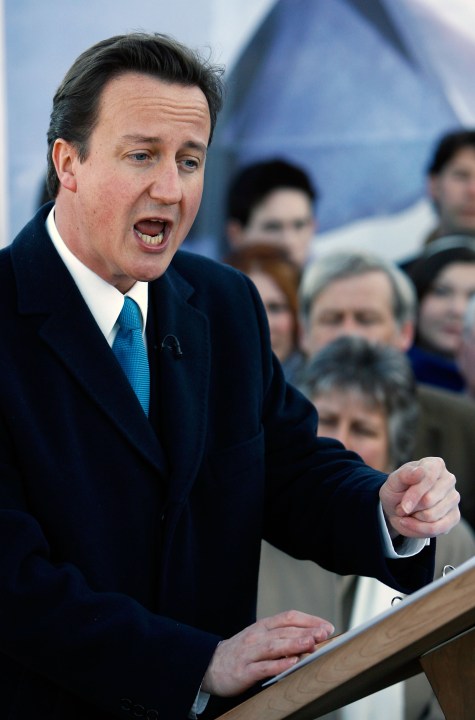 After ten days behind the counter here at CoffeeHouse, I have at last had my inaugural kicking – for my earlier piece on the Conservatives and their current “negative politics”. So it is with a rather sadomasochistic spirit that I enter the fray again.
After ten days behind the counter here at CoffeeHouse, I have at last had my inaugural kicking – for my earlier piece on the Conservatives and their current “negative politics”. So it is with a rather sadomasochistic spirit that I enter the fray again.Numerous commentators are slating the Tories for failing to capitalise on Brown’s misery in the polls. Why this failure? I see a link between the Tories’ rather lowly showing and their engaging in some more bluntly adversarial politics (of the name-calling variety) over the past few weeks. Exhibit A would be Cameron calling Brown “that strange man in Downing Street”. Quite right, you may say, politics is a brutal business. However, it should be balanced by a positive message – at such times the Opposition should stridently state their case as a true alternative. Otherwise, the name-calling can be seen as symptom of having not very much else to say.
If the Tories are not seen as sufficiently different from Labour, why should they enjoy the 35-point leads that Blair had in January 1995? Too often, both parties are fighting over the same ground rather than exploring new territory. Both Brown and Cameron are now claiming to be “the heir to Blair”; the Tories have promised to match Labour spending commitments; and then there are the policies on green and inheritance taxes, which – although stolen by Labour – now do nothing to really distinguish the parties.
Here, there’s a lot to be learnt from the way that Tony Blair lead his party prior to the 1997 general election. Of course, there was plenty of vicious, adversarial politics – attacks on John Major and his party – but this was matched by a Labour change agenda. This was neatly encapsulated by the “New Labour” sobriquet, but found its fullest expression in Blair’s Big Idea: to marry free markets with social justice. This is what distinguished New Labour from the Major Government, and it spelt a new horizon for the UK. In all, the opening of the 1997 Labour manifesto was not just an idle boast:
“In each area of policy a new and distinctive approach has been mapped out, one that differs from the old left and the Conservative right. This is why new Labour is new … New Labour is a party of ideas and ideals but not of outdated ideology. What counts is what works. The objectives are radical. The means will be modern”
Today, the desire for change is palpable, but no parties are truly delivering on it. To use the language of that 1997 manifesto, none of the parties is being “radical”. So what could be the Tories’ Big Idea? What could help them shoot massively ahead in the polls? I suspect that the answer is an old idea which needs reinvigorating – namely, tax cuts. Polls suggest that the public are increasingly concerned about high taxes, and – after all – it was George Osborne’s tax cut proposals (w.r.t. inheritance tax and stamp duty) which made the Tories overtake the Brown Government in the first place. Just imagine where they’d be if they’d been stressing this position over the past couple of weeks.







Comments